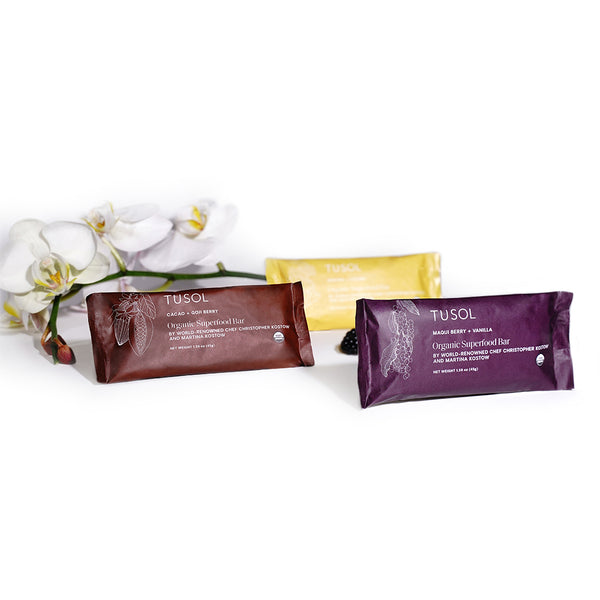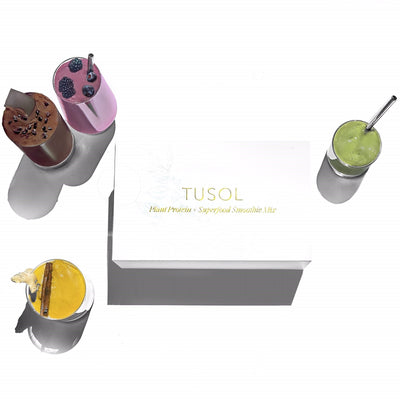It feels like there's never enough time in the day. Eating complete meals isn't always the easiest thing to do, especially when you're constantly on the go. Nowadays, the trend is to rely on dietary supplements. Taking vitamins and minerals is a quick and easy way to get the appropriate nutrients your body needs. However, the original purpose of vitamins and minerals was to cure those with deficiency diseases, not as a replacement for whole foods [1].
So, when should you be taking dietary supplements? What role should they play in maintaining a healthy diet?
What is a Dietary Supplement?
Dietary supplements are a simple way to increase the nutrient intake in your body. This could be anything from vitamins, minerals, amino acids, enzymes, and even herbs. They can come in different forms, like a tablet, powder, or liquid.
The supplement market is huge. In 2019, the Council for Responsible Nutrition (CRN) found that 77% of Americans took supplements [2]. Valued at $48.22 billion, this market is expected to grow exponentially [3].
Dietary supplements are approved by the Food and Drug Administration (FDA). But - they are approved as food, not drugs. This means that some supplements on the market could contain natural compounds at a higher concentration than are found in food, which could have a bad interaction with prescription medications [4].
Where do the Vitamins and Minerals come from?
Most commercial vitamins and minerals are created synthetically in a lab, which is cheaper and more accessible than extracting them from food sources. However, this process turns vitamins and minerals into an artificial, unnatural form. In addition, since the FDA doesn't regulate these supplements the same way it does traditional drugs, you may be consuming too much or too little of what it says on the bottle. What's more, there may be harmful additives that enhance the supplement's effects but are not labeled anywhere [5].
It's not always clear how the body absorbs synthetic vitamins and minerals. What your body does understand is nutrients from whole foods. For example, one study found that your body absorbs natural vitamin E better than synthetic vitamin E in a 2 to 1 ratio [6].
Drawbacks of Relying on Dietary Supplements
There are concerns about how supplements are absorbed in the human body.
For example, taking fat-soluble vitamins on an empty stomach can cause nausea. In addition, taking too many different supplements at once may cause them to work against each other. Taking calcium, magnesium, or zinc together, for example, is ineffective, and your body will not absorb them.
Below are some more drawbacks from relying on vitamin and mineral supplements:
Medicine interference
Taking a dietary supplement with other medicines can change its effectiveness and may create unpleasant side effects. Furthermore, some medication and supplement combinations may have more drastic consequences. For example, taking blood-thinning medication together with vitamin E may increase the risk of stroke [7].
Your body may not react kindly to what it's absorbing, so it's important to consult a medical professional before beginning any supplements in conjunction with your medication.
Excess in vitamin and mineral reserves
Taking too much of one supplement can create toxic effects. Vitamin A, for example, is a fat-soluble vitamin, meaning it gets stored in the liver. Therefore, it can be extremely harmful if taken in large quantities. Some side effects from vitamin A include dizziness, headaches, fatigue, irritability, hair loss, and, in severe cases, mental changes. Pregnant women especially should avoid over-consumption of vitamin A due to a link in birth defects [8].
Excess iron in the body is also harmful. For example, toxic iron levels cause stomach pain and may cause fatal damage to the liver or brain [9].
Natural sources contain complementary nutrients
Simply put: whole foods, like fruits and vegetables, have better overall benefits conducive to a healthy, balanced diet. This is because whole foods contain a mixture of micronutrients, fiber, and antioxidants. So if you take supplements on top of a healthy diet, you may be getting more than you need.
When you focus solely on taking supplements, you miss out on the nutrients from whole foods and their benefits. Some nutrients help with each other’s absorbance and how they're used within the body. You don't always get this from an isolated compound.
Importance of Natural Nutrient Intake
Getting the proper dosage of vitamins
As mentioned earlier, there are two types of vitamins: fat-soluble and water-soluble. Fat-soluble vitamins, like vitamin A and D, are found in fat-containing foods like fish oil, cheese, and leafy greens. Like vitamin C and B12, water-soluble vitamins are found in fruits, eggs, grains, and meat.
When consuming natural, whole foods like fruits and vegetables, you're likely already getting the right vitamins needed for your body.
Preventing nutrient deficiencies
Dietary supplements should not be used as food replacements. To avoid nutrient deficiencies, the diet should focus on:
- Healthy fats (think avocados)
- Fiber
- Brightly-colored berries for antioxidants
- Lean protein (like fish and Greek yogurt)
Meeting vitamin and mineral requirements
The conversation of food vs. supplements isn't always all-or-nothing. In certain scenarios, supplements may be a good safeguard against nutrient deficiencies. For example, pregnant women or those trying to get pregnant are typically advised to get at least 400 micrograms of folic acid. People with an iron deficiency or on dialysis may require an iron supplement. For people who follow a diet that excludes a specific food group (i.e., vegetarianism, veganism), taking calcium or vitamin B12 supplement is essential to maintain good health.
Reducing the risk of heart disease and cancer
There is evidence that shows that a healthy diet significantly reduces heart disease. For example, a diet that consists of whole grains, fruits and vegetables, legumes, nuts, fish, chicken, and limited dairy can reduce the risk of heart disease by a third [10].
Cancer has been linked to sugary foods, red and processed meat, and high dairy consumption. However, by eating a balanced diet of lots of leafy greens, colorful fruits, and whole grains, you will significantly reduce the risk of developing cancer.
Cost-saving choice
Multivitamins and supplements are expensive. The cost can vary depending on where you buy your supplements, whether from a superstore chain or a local health food market. The cost of a multivitamin container is usually anywhere between $9-$35, depending on the size, amount, and brand.
Getting your nutrients from food instead of supplements is usually a cheaper option. Fruits and vegetables are always within the budget, costing significantly less while giving you a much healthier alternative in the long run.
Always Choose Whole Foods
Plain and simple: your body needs whole foods. It's the best way to get your nutrients. By eating a healthy diet every day, you will get the natural vitamins and minerals your body needs. In addition, whole foods contain good nutritional value, and that's hard to replace with a simple tablet or pill.
That’s why we’ve designed our organic smoothies and lattes with whole food sources so your body can absorb and benefit from all the vitamins and minerals naturally occurring in plants.
References:
- Marleen AH Lentjes (2019). The balance between food and dietary supplements in the general population. https://www.ncbi.nlm.nih.gov/pmc/articles/PMC6366563/https://www.ncbi.nlm.nih.gov/pmc/articles/PMC6366563/
- The Council for Responsible Nutrition (2019). Dietary Supplement Use Reaches All Time High. https://www.crnusa.org/newsroom/dietary-supplement-use-reaches-all-time-high
- Fortune Business Insights (2020). Dietary Supplements Market Size, Share & COVID-19 Impact Analysis. https://www.fortunebusinessinsights.com/dietary-supplements-market-102082
- Food and Drug Administration (2021). Dietary Supplements. https://www.fda.gov/consumers/consumer-updates/dietary-supplements
- Robert H. Shmerling, MD (2019). What's in your supplements?https://www.health.harvard.edu/blog/whats-in-your-supplements-2019021515946
- Burton GW, Traber MG, Acuff RV, Walters DN, Kayden H, Hughes L, Ingold KU (1998). Human plasma and tissue alpha-tocopherol concentrations in response to supplementation with deuterated natural and synthetic vitamin E. https://pubmed.ncbi.nlm.nih.gov/9537614/
- Food and Drug Administration (2014). Mixing Medications and Dietary Supplements Can Endanger Your Health. https://www.fda.gov/consumers/consumer-updates/mixing-medications-and-dietary-supplements-can-endanger-your-health
- National Institutes of Health (n.d.) Vitamin A- Fact Sheet for Consumers. https://ods.od.nih.gov/factsheets/VitaminA-Consumer/
- Catherine Shaffer, PH.D. (2019). What happens if you take too much iron? https://www.news-medical.net/health/What-Happens-if-You-Take-Too-Much-Iron.aspx
- Sonia S. Anand (2015) Food Consumption and its Impact on Cardiovascular Disease: Importance of Solutions Focused on the Globalized Food System: A Report From the Workshop Convened by the World Heart Federation.”https://www.ncbi.nlm.nih.gov/pmc/articles/PMC4597475/














